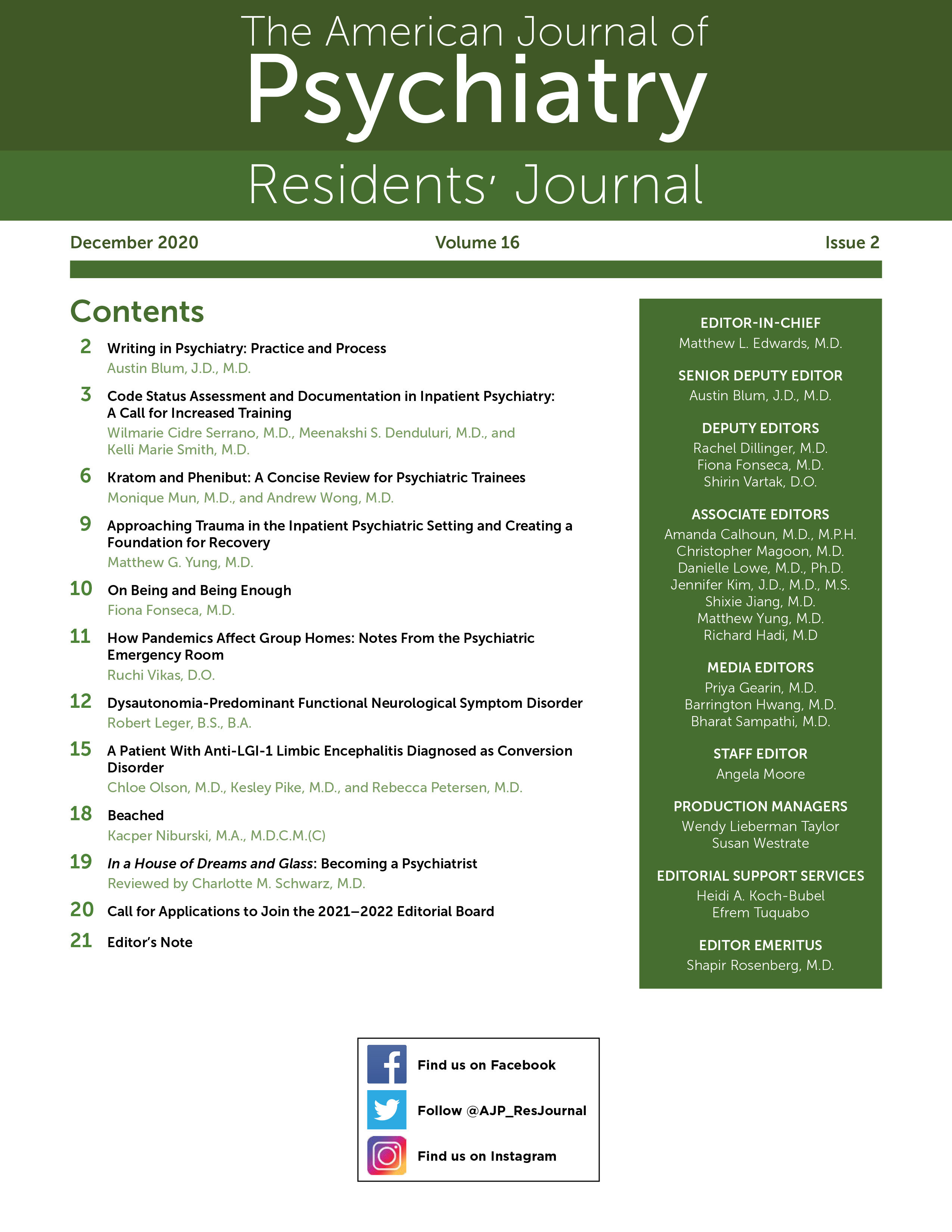"What brings you in today?" I asked Mr. M, who was seated across the table from me in a cramped interview room. Mr. M had been brought into our locked psychiatric emergency room from his group home by police earlier that morning.
I knew why the police had brought him. Mr. M had severe intellectual disability and resided in a nearby State Operated County Residence (SOCR) with constant supervision. SOCR staff had called the police after Mr. M picked up the TV and threw it across the room. It was hard to connect those violent actions with the dejected man before me.
Mr. M sat stubbornly with his arms folded and glared at me. He was in his mid-fifties, with graying hair combed listlessly across a pale scalp and a pouting mouth that hung open. His thick arms testified to the strength of someone who could throw a TV easily.
"I destroyed property."
"Why?"
"Mad."
"Why were you mad?"
"They didn’t take me to the program," he snapped.
I sighed. I knew where this was going, but I needed Mr. M to explain his thought process. "Why?"
He wouldn’t meet my eyes. "Cancelled."
"Why was the program cancelled?"
"The virus. Everything, closed because of the virus. My check didn’t come because of the virus. No buying soda, because of the virus."
"It sucks," I declared. My frankness surprised him so much that he looked up to meet my eyes. "I know what I said. Every joy you rely on is gone. But … is it the staff’s fault?"
He glared at me. "No. But I don’t care! I was mad. Staff wouldn’t pay attention to me, so I threw the TV across the room. And knocked over the fridge."
"That’s the only fridge and TV, right?" I asked gently. "Can staff always pay attention to you if there’s less of them but the same number of residents?"
He gazed at the floor, maintaining silence.
I sighed again. "I know this is hard. I know. It’s hard for me too. I don’t know what else to say."
"I didn’t hurt anyone," he said sadly. "I don’t want to hurt anyone either."
His group home pleaded for help when I called them.
"We’re so overwhelmed," she told me. "He is angry and getting violent. He’s not the only one. Their checks don’t come. They can’t leave the house so there’s more fights. So many staff are home sick. We don’t have the facilities for this."
"I wish I had a better answer. I really do."
Helplessness is not a new feeling in psychiatry, and getting better is subjective for our patients. Patients often get better until—until they stop taking medications, until they encounter a novel stressor, until they relapse inexplicably. Psychiatrists are accustomed to familiar faces passing through. If we cannot get patients better, we can work to keep them at their best and to get them back there if they relapse. Mr. M’s best self relied heavily on a structured setting. I wondered if I could attempt to reconstruct a semblance of routine in the stark absence of one. I would never know if it worked, but I could try.
I considered this when I returned to him. "I don’t know when your program will restart or when your check will come. And it’s hard to understand why so many things are different now. It’s hard for me too. Can you tell me some other things you like doing, so we can make a new routine for now?"
He regarded me carefully for a moment, then nodded.
